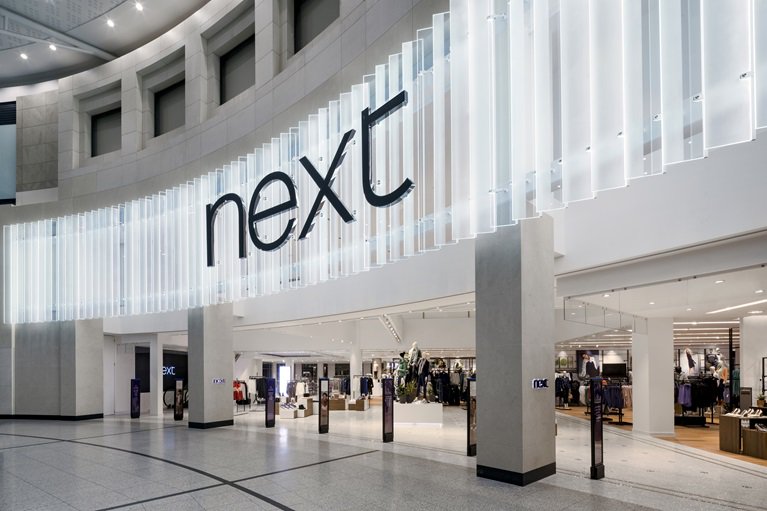Why Next shares just took a tumble
They've had a great 2019, but there’s something in this update that investors don't like.
30th October 2019 12:57
by Graeme Evans from interactive investor
They've had a great 2019, but there's something in this update that investors don't like.

Next (LSE:NXT) investors have seized the opportunity to lock in some of their chunky 2019 profits after the retailer's latest update did little to ease jitters ahead of the key trading season.
Having been at its highest level in almost four years after a spectacular 64% rally this year, the blue-chip stock gave up recent momentum to fall more than 3% to 6,634p.
This was after a third-quarter update containing few surprises, with October's full-price sales growth of 5% a significant improvement on September's performance, when unseasonably warm weather limited growth to just 1%.
Next's warning that it doesn't think it will repeat October's showing in the months ahead triggered the share price fall, even though the retailer still expects to meet expectations for sales growth of 3.6% and a 5.2% rise in earnings per share for the year to January.
Making retail forecasts at the moment seems to be getting harder by the day, especially now there's the prospect of a General Election in the middle of the busiest trading season.
A winter election will be uncharted territory for modern retailers. While there's likely to be an element of disruption to trading patterns and footfall, the sector might also benefit from a pre-Christmas sales surge if the poll helps put an end to recent Brexit uncertainty.
Lord Wolfson, Next's Brexit-supporting CEO, has said previously that political events rarely have a major bearing on sales performance, unless they impact on household income.
Weather conditions are much more significant, with the warmth of last November meaning Next is now up against much softer comparisons for the month of Black Friday trading.
Lord Wolfson, who has run Next since 2001, has the added benefit of a trusted trading formula in which the sprawling 499-strong shop estate still has a big role to play in the company's success. Retail sales continue to fall but Next insists the stores are not a liability if they provide a point for online customers to collect and return their orders.
Online sales topped £1 billion in the recent half-year and exceeded the figure for retail, driven by the expansion of its Label business selling third-party ranges from brands including Adidas (XETRA:ADS), French Connection (LSE:FCCN) and Boohoo (LSE:BOO).
UBS analyst Andrew Hughes said Next's focus on full-price sales was key to its success in a weakening clothing market.
He added:
"Next is in a strong position in the mid-market given capacity reduction elsewhere, and is also well placed with a 50-50 retail/online split. It should also benefit through Label from ongoing pressure on the department store sector, and from increasing traction overseas."
The bank's 6,300p share price target is under review, while Liberum has increased its target to 7,000p from 6,500p but changed its overall recommendation from "buy" to "hold".
While this highlights growing uncertainty about whether Next's strong run is coming to an end, Morgan Stanley points out that the retailer still trades at a discount to the rest of the sector. The shares are on 14.3 times 2020 earnings with a 2.6% dividend yield, compared with a UK general retail sector trading on 14.5 times and 3.1% yield.
Next continues to return surplus cash to shareholders, with a target of £300 million for the year. Since January 2015, it has returned £1.7 billion to shareholders through special dividends (£685 million) and share buybacks (£1 billion).
The earnings boost from these share buybacks means that EPS in the year to January 2020 is likely to be 9% higher than five years ago and the highest EPS the group has delivered.
These articles are provided for information purposes only. Occasionally, an opinion about whether to buy or sell a specific investment may be provided by third parties. The content is not intended to be a personal recommendation to buy or sell any financial instrument or product, or to adopt any investment strategy as it is not provided based on an assessment of your investing knowledge and experience, your financial situation or your investment objectives. The value of your investments, and the income derived from them, may go down as well as up. You may not get back all the money that you invest. The investments referred to in this article may not be suitable for all investors, and if in doubt, an investor should seek advice from a qualified investment adviser.
Full performance can be found on the company or index summary page on the interactive investor website. Simply click on the company's or index name highlighted in the article.